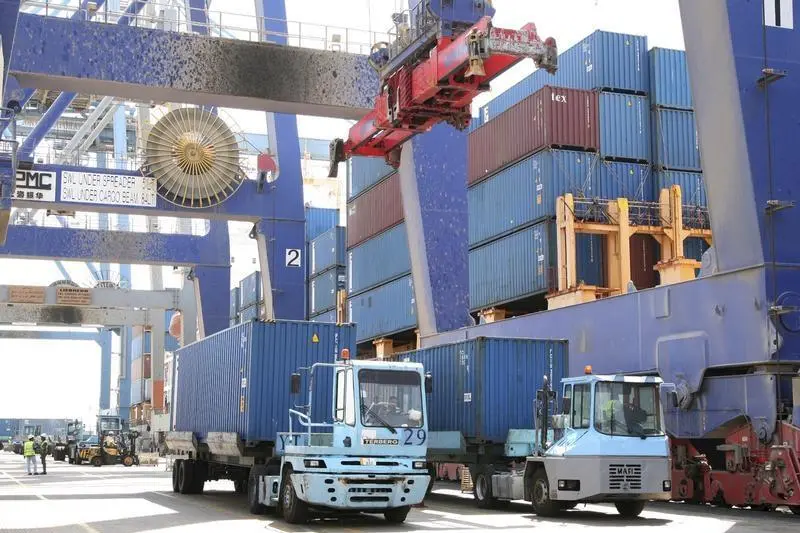PHOTO
AMMAN - Jordan's stockpile of wheat reserves for over a year, its fuel contracts, and its healthy foreign currency reserves have so far helped it absorb the impact of the Ukraine crisis on its economy, the finance minister said on Thursday.
Finance Minister Mohamad Al Ississ said the government had already before the crisis built up a stockpile of 13 months consumption of wheat reserves and "locked in long-term fuel contracts" to help reduce the country's hefty import bill.
Foreign currency reserves were now at near record $17 billion levels.
"Jordan has prepared well for such a crisis," Al Ississ told Jihad Azour, the director of the International Monetary Fund's (IMF) Middle East and Central Asia Department, in a IMF conducted online discussion released on Thursday.
Al Ississ said the IMF's slashed growth projections for the Middle East region showed that high inflation and the impact of the Ukraine crisis would further increase food and fuel prices and reduce disposable incomes.
"If history has taught us anything, it is the most vulnerable who suffer," Al Ississ said.
The crisis and inflationary pressures could affect Jordan's pace of economic recovery from the pandemic, where growth was expected to again rise to 2.4 % this year after the sharpest contraction on decades due to the coronavirus, Al Ississ said.
"For countries like Jordan whose economy has still yet to recover still, it will put the brakes on our growth when it's just about to start recovering and that is concerning," he added.
Al Ississ said Jordan's limited fiscal cushion meant it faced the challenge of creating social safety buffers under an existing IMF-backed $1.3 billion programme that was intended to spur growth by creating jobs.
"We have one in two unemployed among the youth. This is our number one concern... We must ensure there is a trickle-down, that the most vulnerable are protected at the worst times of crisis," he added.
IMF-backed reforms require the country to maintain a fiscal consolidation plan focused on revenue collection by broadening the tax base in line with popular demands by civil society for equitable tax treatment, Al Ississ said.
The government had increased revenue last year without raising taxes through a rare campaign to combat tax evasion and by a restructuring of the tax and customs administration that ended tax exemptions.
"The current policy goes after cutting loopholes on tax evasion, avoidance and smuggling and supports people rather than subsidising people at large," Al Ississ said.
(Reporting by Suleiman Al-Khalidi; Editing by Aurora Ellis)





















